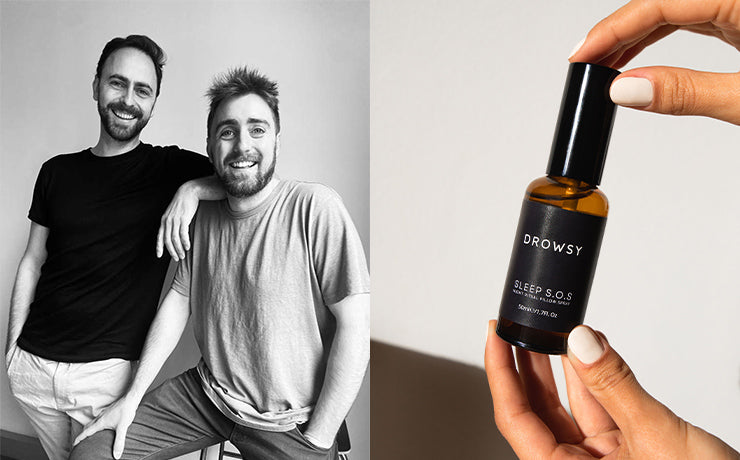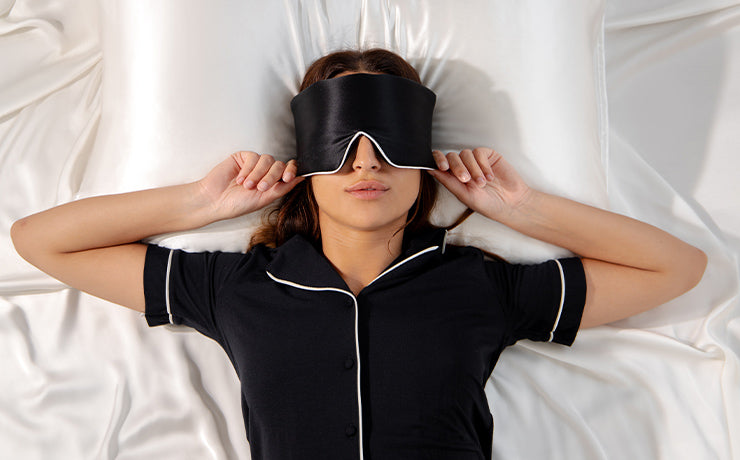Wake up energised: the link between sleep quality & daily energy
Some mornings, you open your eyes and feel ready to go. Others? It's like your body's still stuck in bed, even if you're upright and sipping coffee.
The truth is, energy doesn't just show up because your alarm went off. It's built overnight, quietly, while you sleep. And not just any sleep: restful sleep. The kind that gives your body time to recover, reset, and recharge. Without it, you're not just tired. You're sluggish and maybe even moody. Sound familiar?
Let's break down why sleep quality matters so much and how to actually improve it.
Not all sleep is equal
You might be in bed for eight hours, but that doesn't mean your sleep quality was good enough. Ever "slept" all night but still woke up exhausted?
Your body cycles through different stages of sleep: light sleep, deep sleep, and REM. Each one plays a role in helping you feel rested. Deep sleep restores your muscles and immune system. REM sleep supports memory, mood, and brain function.
But if those cycles get interrupted by noise, stress, temperature, or even late-night scrolling, your sleep might not be doing its job. So you wake up technically rested but not really restored. There's a difference.

What a good night's sleep actually does for your energy levels
Sleep hygiene isn't just about hours logged. Ιt's about how efficiently your body moves through those stages and how well your circadian rhythm and sleep-wake cycle work together. When you hit enough deep and REM sleep, your brain clears out waste, your hormones rebalance, and your nervous system gets a chance to calm down. That sets the stage for natural energy the next day.
Without it, your body scrambles. Cortisol might spike too early. Blood sugar can dip. Focus tanks. Suddenly, you're on your third cup of coffee by 10 am, wondering why you're still dragging. It's not that you're lazy. It's that you're dealing with sleep deprivation or insufficient sleep that messes with your system.
Signs you're not getting quality sleep
It's not always obvious. You might not even realize your sleep is off. Here are a few subtle clues:
-
You need an alarm (or three) to wake up
-
You feel groggy for more than 30 minutes in the morning
-
You crash hard in the afternoon
-
You rely on caffeine just to function
-
Your mood is... not so great
That grogginess is called daytime sleepiness. It shows up when you're a sleep-deprived person, even if you think you got "enough" rest. Some people also experience difficulty falling asleep or even fall asleep but wake repeatedly, signs often linked to sleep disorders. Of course, some of that happens occasionally. But if it's your norm? Your sleep likely needs some attention.
How to improve sleep quality (without overhauling your life)
The good news? You don't need a full wellness makeover. Small shifts can lead to big improvements.
1. Stick to a consistent sleep schedule
Your body loves routine. Going to bed and waking up around the same time every day, even on weekends, helps regulate your internal clock. It's not always convenient, but it works.
2. Cool it down
Most people sleep better in a cooler room. Around 65°F tends to be the sweet spot, but find what feels right for you. Heavy blankets might feel cozy at first, but if you wake up sweaty, they're not helping.
3. Light matters
Your body takes light cues seriously. Get natural sunlight in the morning if you can, and dim your lights at night. That includes screens. Yes, we know, you've heard it before. Still true.
4. Wind down properly
Scrolling TikTok doesn't count as winding down (even if it feels like it). Try a warm shower, a sleep mask, or quiet stretching before bed. You don't have to go full zen, but give your brain a heads-up that sleep is coming.
5. Create a sleep-friendly space
Your bedroom shouldn't feel like a workspace, gym, or storage unit. Keep it clean, calm, and dark. Eye masks can help block light. So can blackout curtains. And if noise is a problem, white noise or earplugs might be worth a try.
6. Skip the nightcap
Alcohol might make you sleepy, but it messes with your sleep cycles. If you want to feel rested, it's better to skip it or cut it off a few hours before bed.

A few things that can help
Some people swear by weighted blankets. Others love herbal teas or calming music. But there's one underrated trick that works for a lot of people: blocking light. Even tiny bits of it, like a streetlamp or a glowing charger, can disrupt your sleep.
A good sleep mask helps with that. The ones that actually block light, feel soft on your skin, and stay in place if you toss and turn. It's a simple tool, but it makes a difference. Drowsy's silk sleep masks are a favorite for that reason. They don't just look nice. They work. And when your sleep improves, so does your morning alertness and overall energy.




